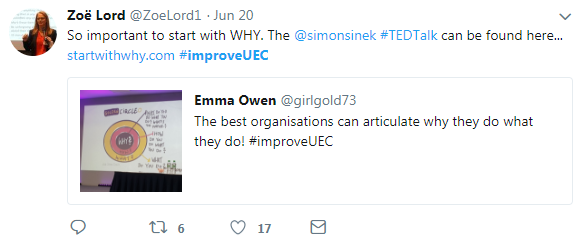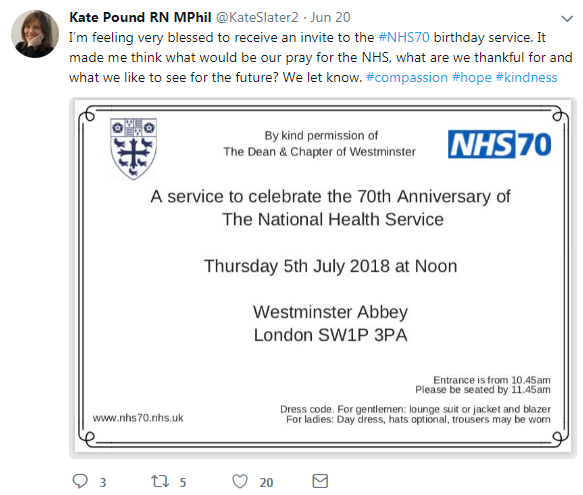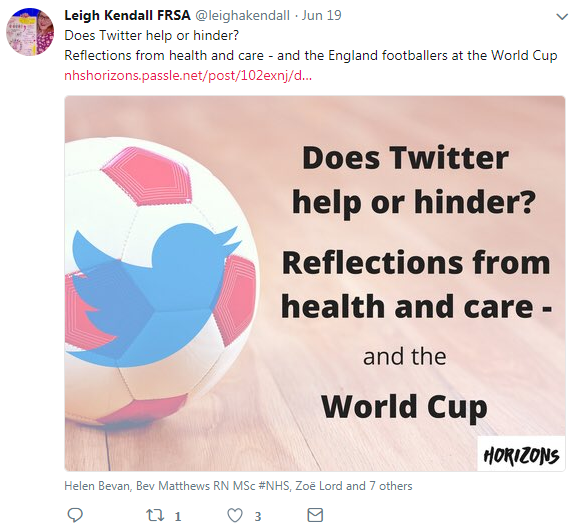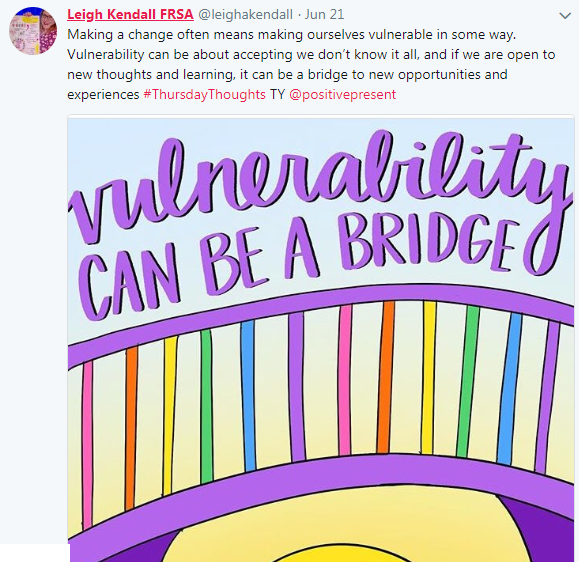The Horizons team features many influential Twitter users. This curates a wealth of insights, knowledge, and information about transformation in health and care from other thought leaders across the world.
(Tip: to read an article or watch a video mentioned in a tweet, click on the red text. To view the original tweet, click on the image).
Community
The Horizons team is supporting Project A, improving NHS ambulance service. It's great to see so much buzz about the project and the launch which is on 28th June:

Zoe has been supporting the project to improve urgent and emergency care in the North. Watch the Simon Sinek TED talk Start With Why.

Kate has received an invitation to the #NHS70 birthday service. What are you thankful to the NHS for, and what would you like to see in the NHS for the future? Get in touch with Kate to her her know.

The team recently held an Unconference with the Transform Alliance about Future Generations - Dom and Kathryn have collaborated on a blog post about what happened:

Does Twitter help or hinder? Leigh wrote a post with reflections on how we use Twitter in health and care, compared to the England football team.

Interested in supporting a small local charity? Olly has built a tool where you can type in your postcode and get details of a small charity that is local to you.

Influencing Sustainable Change
Want to influence people for change and improvement? Here's an article about six levers we can use to persuade people to change their views, mindsets, or behaviours based on the work of Robert Cialdini:

If we want to lead change, we have to be influential. Influence isn't about one or two big things. It's the outcome of aligning a range of small tactics, tools, strategies, beliefs & mindsets. How to supercharge your influence:

Three lists of 10 things related to resistance to change: 10 sources of resistance to change; 10 symptoms of resistance to change and 10 practices that lower resistance to change:

Making a change often means making ourselves vulnerable in some way. Vulnerability can be about accepting that we don't know it all, and if we are open to new thoughts and learning, it can be a bridge to new opportunities and experiences.


We don't need to get the majority of people on board to make change happen. New research on "the science of complex contagions" (large scale change) says that a committed few (around 25%) can influence the many and sweep away the status quo:

There's insightful and important new knowledge in this open access paper on using complexity thinking to bridge the gap between research evidence and its translation into practice in healthcare:

We live in a complex world and when we "solve" a particular problem, it often has unforeseen consequences affecting many other problems.

Resources
Five criteria for working out whether a good idea really is a good idea:

The worst part of conferences (with the least learning) is often the "panel" sessions. All conference organisers should take heed of this advice about how to make panel sessions at conferences less horrible:




/Passle/5a5c5fb12a1ea2042466f05f/MediaLibrary/Images/6168334917af5b10f4bf1d30/2022-04-14-15-27-52-040-62583d78f636e9115805b2d5.png)
/Passle/5a5c5fb12a1ea2042466f05f/MediaLibrary/Images/6168334917af5b10f4bf1d30/2022-08-05-09-59-36-465-62ecea08f636e906acfed639.jpg)
/Passle/5a5c5fb12a1ea2042466f05f/MediaLibrary/Images/6168334917af5b10f4bf1d30/2022-07-28-14-57-17-405-62e2a3cdf636e9180c9835cb.png)
/Passle/5a5c5fb12a1ea2042466f05f/MediaLibrary/Images/6168334917af5b10f4bf1d30/2022-07-20-10-16-56-533-62d7d618f636ea07987f6668.png)
/Passle/5a5c5fb12a1ea2042466f05f/MediaLibrary/Images/6168334917af5b10f4bf1d30/2022-07-15-09-55-32-858-62d13994f636ea1398e71aa9.jpg)